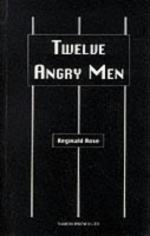
|
| Name: _________________________ | Period: ___________________ |
This quiz consists of 5 multiple choice and 5 short answer questions through Act III.
Multiple Choice Questions
1. Apart from the action of the dissenting juror in Act 1, what other contributions from a juror suggest there is at least one other juror willing to stand up against the behavior of others?
(a) A juror rebukes Juror Ten for his racist comment.
(b) Juror Six says America is a free country.
(c) Juror One says people are free to disagree.
(d) The foreman orders the jurors to be orderly.
2. What do the actions of Juror Nine in Act II reveal about his character?
(a) He is willing to stand up for his beliefs in spite of pressure.
(b) He has thought about the evidence.
(c) He is afraid of Juror Eight.
(d) He believes the defendant is innocent.
3. How does the dissenting juror suggest that the jury should proceed instead of declaring a "hung" jury?
(a) He suggests they ask for additional evidence.
(b) He suggests the eleven men vote again while he abstains; if one of the eleven votes "not guilty" they should discuss the case further.
(c) He suggests they all take a new vote.
(d) He suggests they deliberate further.
4. When asking the reason for the change in their votes in Act III, what does a juror point out to the other jurors?
(a) They ought to rethink what they are doing.
(b) They should not allow one man to make them change their minds.
(c) They are ignoring the evidence that strongly suggests the defendant is guilty.
(d) They might be turning a murderer free.
5. According to the defendant, why did he buy the alleged murder weapon?
(a) To give it as a present to his friend.
(b) Because the one he had before was stolen.
(c) Because he lost the one he had before.
(d) Because his father beat him.
Short Answer Questions
1. What is the main outcome of this discussion about the words spoken by the defendant?
2. What is the central dilemma facing the protagonist in the early stages of the play?
3. What does Juror Eight explain to the juror who asks who killed the man if it was not the defendant?
4. What action do the jurors take as a result of Juror Two's observations about the murder wound?
5. What are the last words spoken in the play?
|
This section contains 535 words (approx. 2 pages at 300 words per page) |

|




